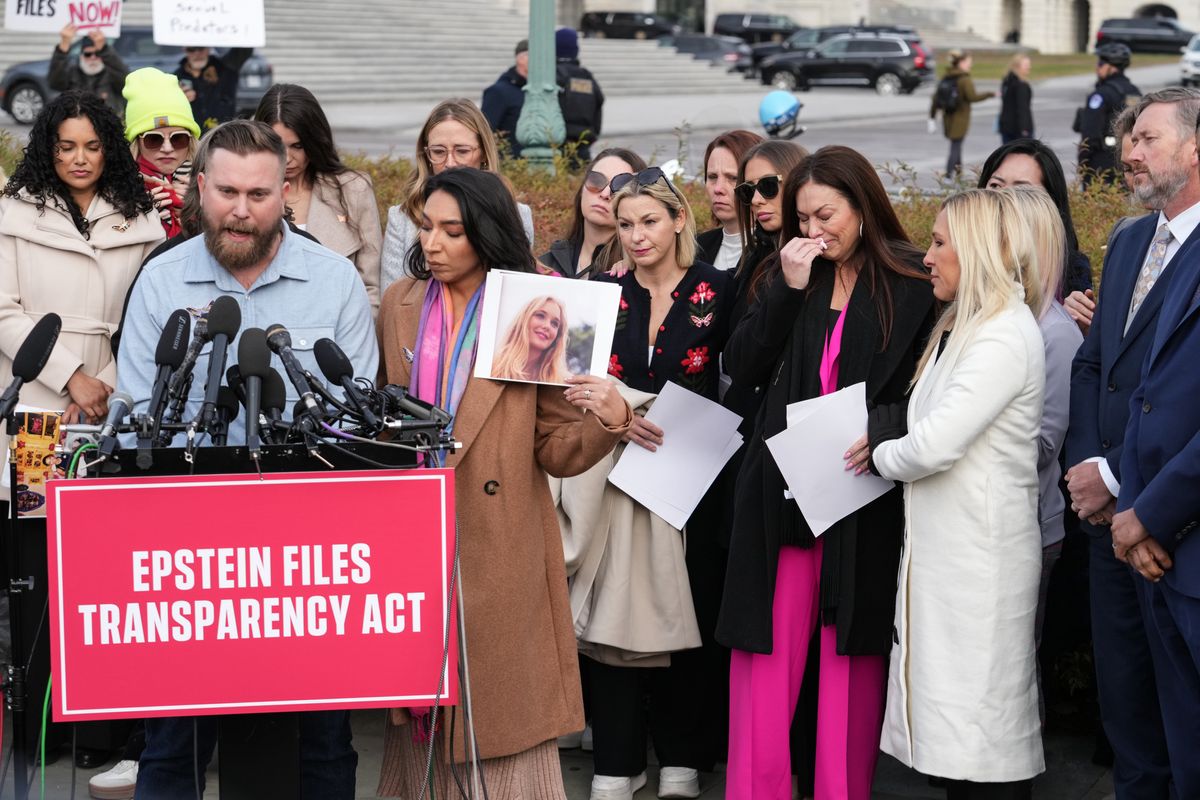NEW YORK (AP) — The clock is ticking for the U.S. government to open up its files on Jeffrey Epstein.
After months of rancor and recriminations, Congress has passed and President Donald Trump has signed legislation compelling the Justice Department to give the public everything it has on Epstein — and it has to be done before Christmas.
But even that might not be enough for the curious and the conspiracy-minded.
While there’s sure to be never-before-seen material in the thousands of pages likely to be released, a lot of Epstein-related records have already been made public, including by Congress and through litigation.
And don’t expect a “client list” of famous men who cavorted with Epstein. Though such a list has long been rumored, the Justice Department said in July that it doesn’t exist.
Here’s a look at what’s expected to be made public, what isn’t, and a refresher on how we got to this point:
Who is Jeffrey Epstein?
Epstein was a millionaire money manager known for socializing with celebrities, politicians, billionaires and the academic elite who was accused of sexually abusing underage girls.
His relationships with powerful men, including Trump, former President Bill Clinton and the former British prince Andrew Mountbatten-Windsor, have been the subject of endless fascination and speculation. Neither Trump nor Clinton has been accused of wrongdoing. Andrew has denied abusing anyone.
Police in Palm Beach, Florida, began investigating Epstein in 2005 after he was accused of paying a 14-year-old girl for sex. The FBI then joined the investigation, but Epstein made a secret deal with the U.S. attorney in Florida to avoid federal charges, enabling him to plead guilty in 2008 to a relatively minor state-level prostitution charge. He served 13 months in a jail work-release program.
In 2019, during Trump’s first term, Manhattan federal prosecutors revived the case and charged Epstein with sex trafficking, alleging he sexually abused dozens of girls. He killed himself in jail a month after his arrest.
In 2021, a federal jury in Manhattan convicted Epstein’s longtime confidante and former girlfriend Ghislaine Maxwell of sex trafficking for helping recruit some of his underage victims. She is serving a 20-year prison sentence.
What’s in the Justice Department’s Epstein files?
Records related to the aborted Florida investigation, the Manhattan investigations, and anything else the Justice Department did to examine Epstein’s dealings in the time in between.
They could include notes and reports written by FBI agents; transcripts of witness interviews, photographs, videos and other evidence; Epstein’s autopsy report; and some material that may already be public, such as flight logs and travel records.
The law, dubbed the Epstein Files Transparency Act, mandates the Justice Department to release all unclassified documents and investigative materials, including files relating to immunity deals and internal communications about whom to charge or investigate.
What isn’t authorized for release under the law?
Anything containing a victim’s personally identifiable information.
The law allows the Justice Department to withhold or redact records that, if made public, would constitute “a clearly unwarranted invasion of personal privacy.” It also bars the release of any materials depicting the sexual abuse of children, or images of death, physical abuse, or injury.
That means that if videos or photos exist of Epstein or anyone else sexually abusing underage girls, they can’t be made public.
However, the law also makes clear that no records shall be withheld or redacted — meaning certain parts are blacked out — solely because their release would cause embarrassment or reputational harm to any public figure, government official or foreign dignitary.
When will the files be available to the public?
The legislation requires the Justice Department to make the documents public in a searchable and downloadable format within 30 days of Trump signing it into law. That means no later than Dec. 19.
However, the law also allows the Justice Department to withhold files that it says could jeopardize an active federal investigation. That’s also longstanding Justice Department policy. Files can also be withheld if they’re found to be classified or if they pertain to national defense or foreign policy.
While investigations into Epstein and Maxwell are long over, Attorney General Pam Bondi last week ordered a top federal prosecutor to lead an investigation into people who knew Epstein and some of Trump’s political foes, including Clinton.
That investigation, taken up at Trump’s urging despite the Justice Department previously finding no evidence to support such a probe, could give the government grounds to temporarily withhold at least some of the material.
What about the so-called client list?
Epstein’s so-called “client list” — a purported collection of his famous associates — has been the white whale of Epstein sleuths, skeptics and conspiracy theorists alike.
Even Bondi got in on the act, telling Fox News in February that the “client list” was “sitting on my desk right now to review.”
The only problem: the Justice Department concluded it doesn’t exist, issuing a letter in July saying that its review of Epstein-related records had revealed no incriminating “client list.” Nor was there credible evidence that Epstein had “blackmailed prominent individuals as part of his actions,” the unsigned memo said.
Why are these records being released now?
Congress is forcing the government to act after Trump reneged on a campaign promise last year to throw open the files. The Justice Department did release some records earlier this year — almost all of them already public — but suddenly hit the brakes in July after promising a “truckload” more.
That prompted a small, bipartisan group of House lawmakers to launch what was initially seen as a longshot effort to compel their release through legislation. In the meantime, lawmakers started disclosing documents they’d received from Epstein’s estate, culminating in a 23,000-page release last week.
As public and political pressure mounted, including from some Trump allies, Congress swiftly passed the Epstein Files Transparency Act on Tuesday and Trump signed it into law on Wednesday.
Haven’t some Epstein files already been made public?
Yes. Before Congress got involved, tens of thousands of pages of records were released over the years through civil lawsuits, Epstein and Maxwell’s public criminal case dockets, public disclosures and Freedom of Information Act requests.
Many documents — including police reports written in Florida, state grand jury records, depositions of Epstein’s employees, his flight records, his address book — are available already. In July, the Justice Department released surveillance video from the jail on the night Epstein died.
Even the FBI has previously released some Epstein-related files, posting more than 1,400 pages to its website, though much of the material was redacted and some hidden because it was under seal.
By MICHAEL R. SISAK
Associated Press


